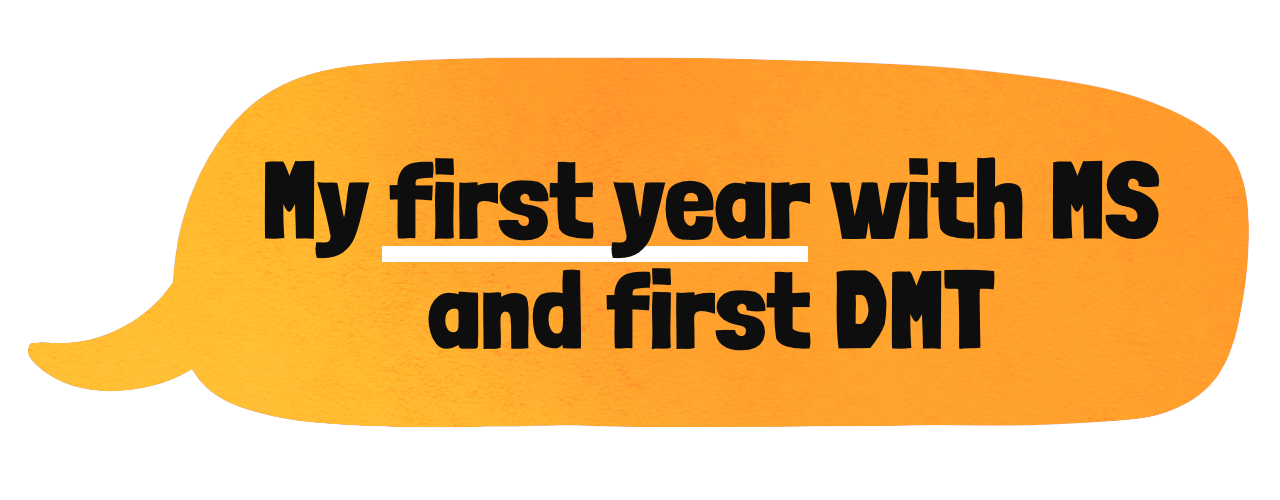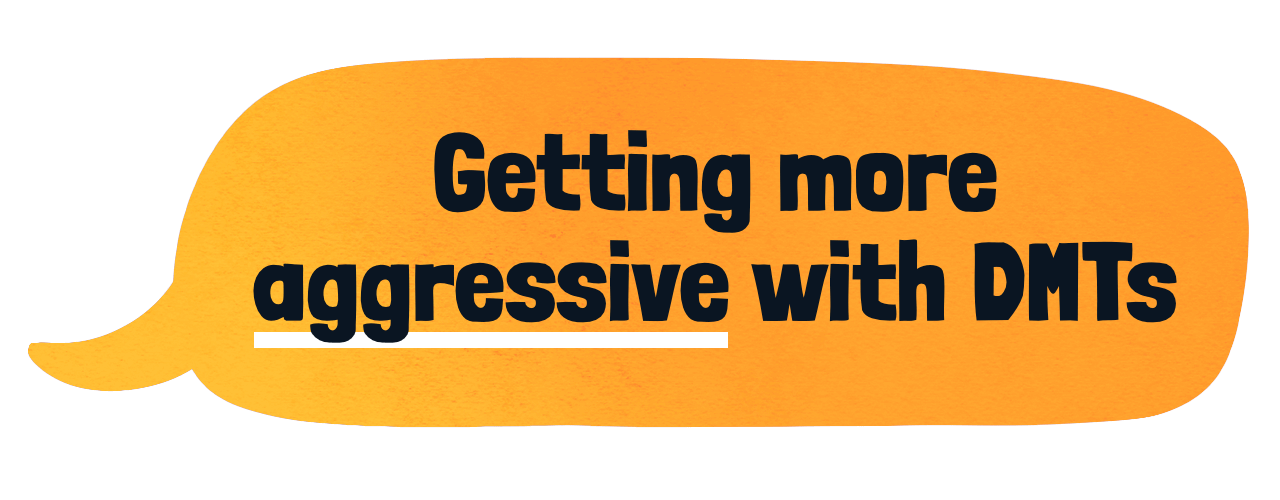My Experience with DMTs for MS and What I Wish I Had Known
Throughout my multiple sclerosis (MS) journey, I’ve been on a variety of different medications for MS called disease-modifying therapies (DMTs). DMTs come in several forms including injectable medications, oral medications, and infusible medications. Chances are you may have been on a few yourself, or that you eventually will while trying to find a medication that works for you.
I myself have so far been on nine DMTs and I’m about to start my tenth, as of my writing this. So today I want to briefly go over my treatment history, how my expectations changed, and some things that I think anyone about to start their first DMT should know.

When I started my first DMT I was optimistic, determined, motivated, and… a bit naïve about how this whole “MS thing” would be going down for me. I didn’t yet have a good understanding of MS, how it’s treated, and what the goals of DMTs for MS actually were. The stage was set for me to feel utterly let down due to the unrealistic expectations I had.
My first year living with MS was full of flare-ups and trips to the ER to receive a 5-day course of IV steroids (Solu-Medrol). For months at a time, my diagnosing neurologist had me on 1,000 mg of oral prednisone a day! In retrospect, this probably should have raised a small red flag regarding how well that DMT was working, but at the time I didn’t know what was and wasn’t normal.

My first year living with MS was somewhat hectic with all the constant flares I experienced. I remember feeling so hopeless and defeated because I thought this medication was supposed to keep me in “remission,” yet I was constantly relapsing. It was so disheartening! Was this going to be my life now? My DMT obviously wasn’t working out, so we decided to switch me over to another injectable, which I didn’t even know was an option. Turns out, people switched all the time!
Unfortunately, my second DMT didn’t do much to make me feel any better about the new reality I had found myself in. This DMT caused me flu-like symptoms after each injection, which were very unpleasant. But if that was the cost I had to pay to avoid constantly relapsing? That seemed like a fair price to me. But after about just 6 months into this medication, I experienced what I still consider to be the worst relapse I’ve ever had. What the heck was I supposed to do?
Featured Forum
View all responses
After that last relapse, I eventually moved on to an infusible DMT. It came with higher risks and more potential side effects, but a higher efficacy. While the risks may have scared me away when I was first diagnosed with MS, now? After everything I had been through in just one year? I was desperate to make it all stop. I now just wanted to get my MS under control, regardless of any potential risks.
I’ve had much better luck keeping my MS under control with this category of DMTs, but I’ve still had to switch things up every so often for various reasons. In fact, I’ve even tried a few combinations of different DMTs while we tried to keep my MS under control.

Looking back, I really wish I had understood the importance of having realistic expectations when it came to treating my MS. I wish it were more clearly explained to me what a DMT was supposed to do and what it wasn’t. At first, I had the expectation that my DMT would clear all my symptoms up and keep them at bay. So long as I was on one, I really shouldn’t have any exacerbations or small flare-ups.
As you may already know, this is not how DMTs work. This isn’t even really what they are trying to do. My expectations were inaccurate and unrealistic, resulting in much disappointment and disheartened frustration.
Eventually, I did figure all this out through a little reading. I quickly learned how the actual goal of a DMT is to reduce the number of relapses. DMTs can also slow disease progression and delay the progression of disability, which is one reason it can be important to start a DMT as early as possible. Disability progression can be measured using a tool called the Expanded Disability Status Scale (EDSS).1-3

If I could give a single word of advice to someone newly diagnosed with MS who’s trying to decide which DMT to start with, it would be this.
First, spend time learning about how these treatments work and what they are specifically trying to accomplish. Had I done this, I almost certainly wouldn’t have had to deal with the sorrow brought about by my own unrealistic expectations. It sounds so simple when I say it out loud, but man, what a difference it makes to know what I can realistically expect from not only DMTs, but also how my MS will act and progress over time.
I also wish I had known about the escalation strategy used by doctors who are treating MS. However, this topic deserves its own post, so I’ll be discussing that and why I wish I knew about it earlier in a future post.
How about you? Do you feel like you were ever let down by your own unrealistic/inaccurate expectations of your MS and how treating it would work? What advice do you have for people trying to choose a first or new DMT? Also, how many DMTs have you been on? Let me know in the comments below!

Join the conversation